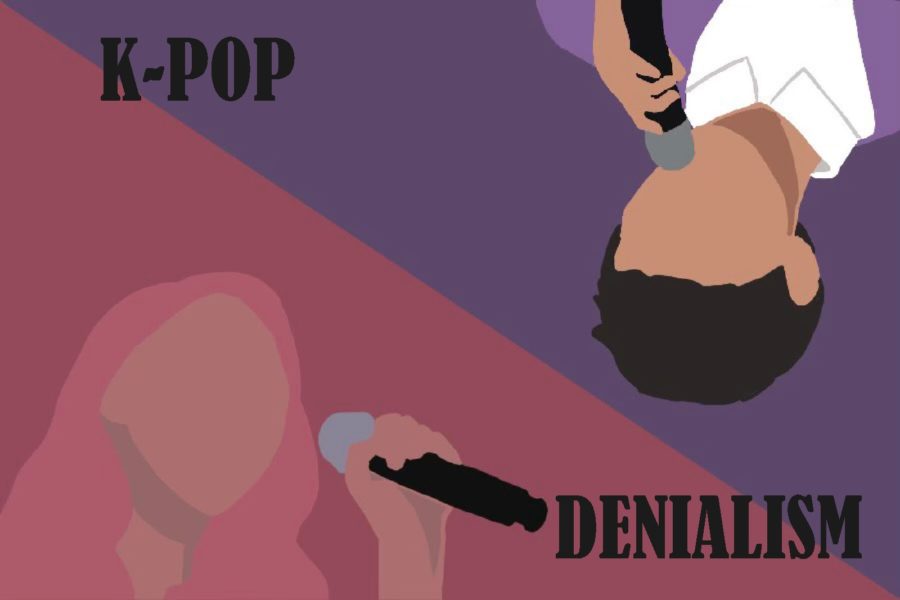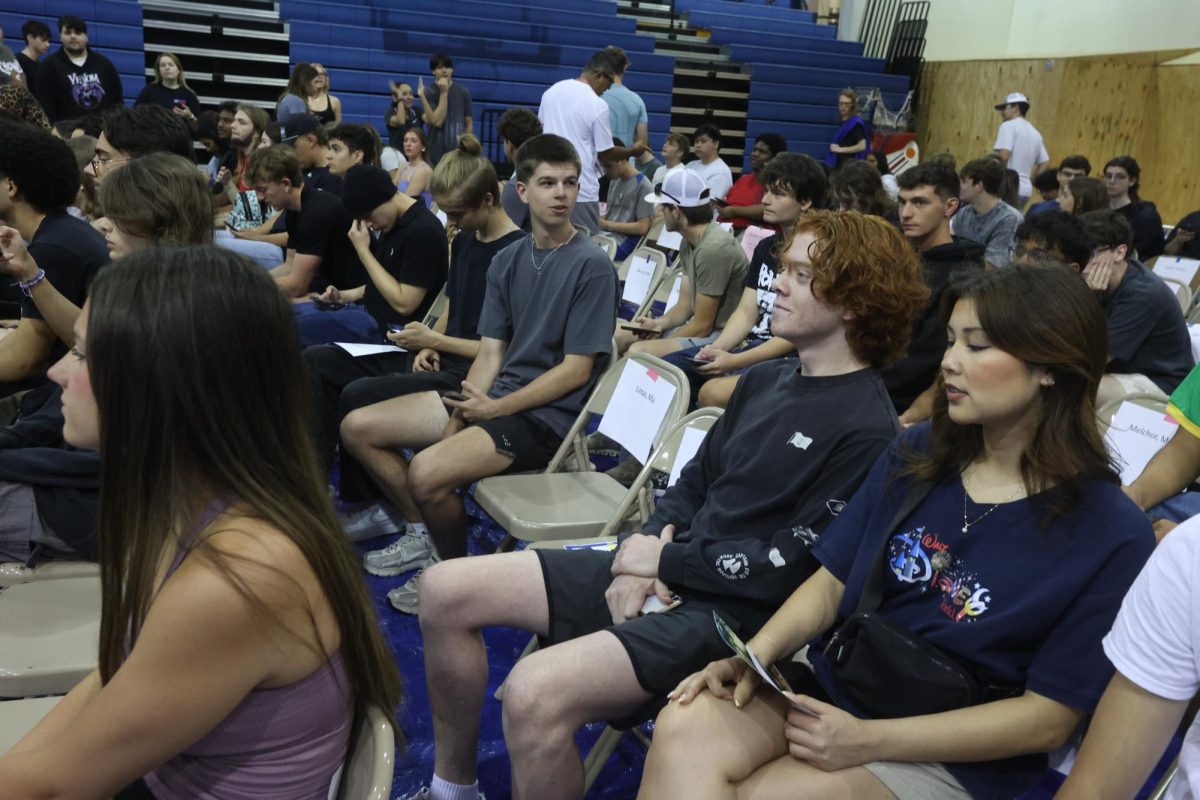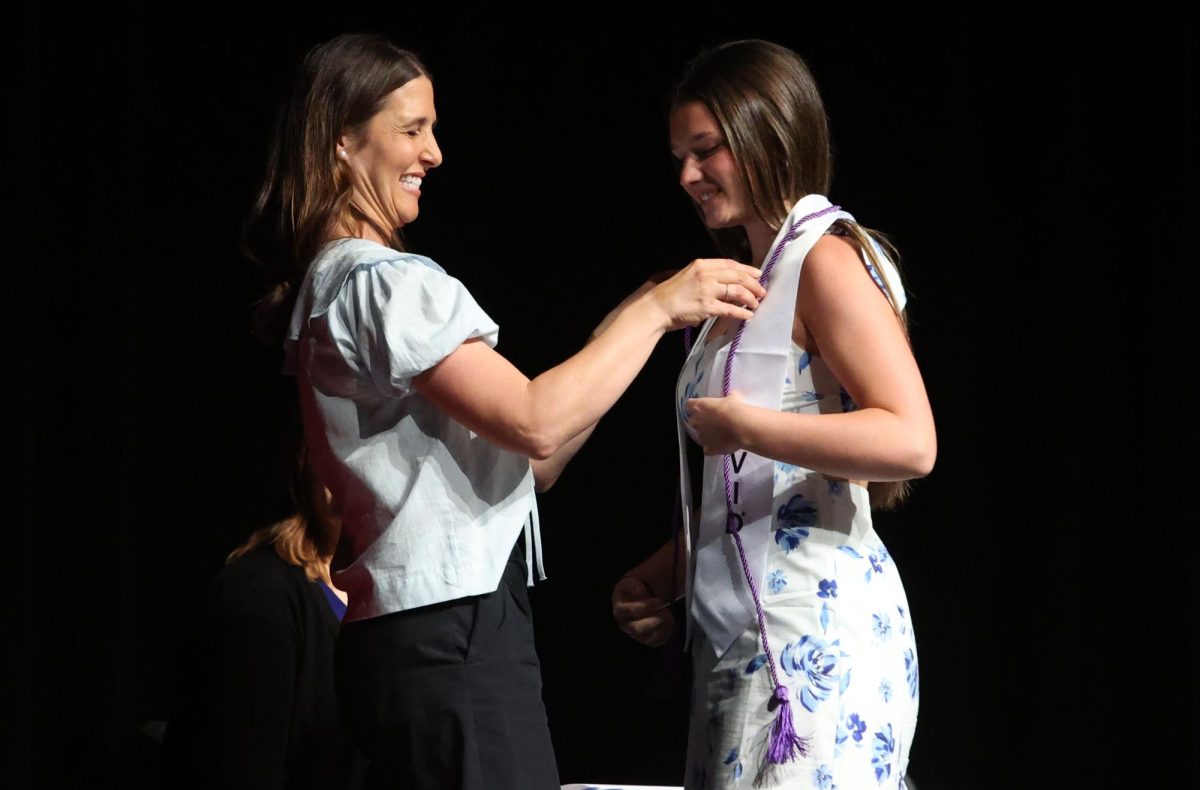K-Pop Denialism
An analysis K-Pop and the hate it receives
November 28, 2022
I’ll admit. I’m the last person who I thought would ever write an article on K-Pop. After all, I always wrote off K-Pop as cheesy and a lame way to have 13-year-old girls spend thousands of dollars on tour tickets and merch. But, believe it or not, I have matured and finally realized the beauty of K-Pop, and that my denial of this sublime music will not get me anywhere.
Part 1: Borderline Racism and Homophobia?
Although I may have changed, I can’t say that the rest of the world (namely the U.S.) has. From criticizing how their voices sound to tweeting racist language toward band members, many people can’t wrap their heads around the fact that you can enjoy listening to songs in different languages, even if you don’t understand them.
Nevertheless, many of these K-Pop denialists regularly storm to Twitter to tweet a barrage of offensive words toward these bands solely based on the fact that the K-Pop members are eastern Asian. Because apparently, if you’re Asian, you “can’t be good at singing,” or anything you do is seen as a “cheap money grab.” When I say I’ve seen it all, I really mean that I’ve seen it all. I may sound like I’m overexaggerating, but trust me, hate against K-Pop is very real and rampant. I’ve seen people claim that certain band members are “gay” or even that they’re spies “working for the Korean government plotting to take down the U.S.”
First and foremost, I would like to address the most popular claim: “K-Pop artists are gay.” (And when I say that, just know that the people who say that only mean it about male K-Pop stars because double standards are very much a thing). These people only make assumptions about band members’ sexualities because they’re put together and tidy. Grow up, seriously. This “subtle” homophobia isn’t a good look for you.
But back to the spies thing – I’m gonna be honest with you. I have no idea how to respond to this. I mean, even if this was true, it’s working. You guys have not seen true terror until you know what happens when you diss BTS fans. BTS specifically.
Part 2: Difference in “Quality”
Anyway, I digress. Along with insulting their race, many people claim that K-Pop doesn’t meet American music standards or that it’s not lyrically good. And obviously, people are going to have their own opinions, and if they feel K-Pop isn’t as good as American music, that’s on them. But it does rub me the wrong way when it’s objectively known that American pop music’s quality has declined since 2017. The last genuinely good pop song on the radio I can remember was probably Suit and Tie by Justin Timberlake (and that song came out in 2013.)
Ever since Olivia Rodrigo’s album, Sour, came out, there has been an influx of mediocre pop music written and produced by 20-year-old girls complaining about their relationship status. (I know this seems random to the essay, but just stay with me for a bit.) This style of music is factually… how do I say this… terrible. This entire style of Rodrigo-inspired pop music is lyrically distasteful and in no way actually good. From poorly written lyrics to song melodies that seem like they’ve been in 30 other songs, it’s all proof that American pop music isn’t good. So for k-pop haters to say K-pop implies that American music is any better, and we all know that’s a lie. I mean, take Gangnam Style by Psy, for example. No American song will have the same impact. Gangnam Style forever changed middle school dances and Zumba classes.
Now, I know I’m no vocal coach or anything, but I am no fool. I can discern good music from bad music, and the songs that American pop artists are putting out nowadays scream mediocrity at its finest.
K-Pop denialists who use this as their argument haven’t listened to GOOD K-Pop. Don’t just listen to “Dynamite” or “Butter” by BTS and then claim that you’ve listened to K-Pop and know what you’re talking about. Two songs out of thousands is a pretty lousy sample size.
Part 3: “It’s Not For Me”
There’s also the fact that maybe the music a certain band is putting out simply isn’t for you. If a band produces music for a target audience of 12 to 14-year-old girls, it should be no surprise that you, a 37-year-old white man, aren’t fans of the music.
Now is also a good time to mention that not all K-Pop is made for teen girls. So many bands and solo artists produce music for an older demographic, so generalizing an entire genre of music based on one song you heard performed on Jimmy Fallon’s talk show seems a little partial. Take “Loco” by Itzy, “Baby” by Camo, DJ Roots, and Jung Jin Hyeong, for example. Never in a million years would I listen to those songs with my grandparents or something.
Saying K-Pop isn’t for people like you because of ONE song you heard would be like if someone from the Democratic Republic of the Congo said that they don’t like American pop music because they hated Mirrorball by Taylor Swift. Although, I’m sure the residents of the Democratic Republic of the Congo have bigger things to worry about than Taylor Swift’s music.
Part 4: Conclusion
Hating K-Pop doesn’t make you cool or different. It makes you look like a complete and utter moron. Of course, if you simply don’t like K-Pop, then whatever. But if you take it upon yourself to actively hate on K-Pop by saying offensive things, I honestly don’t know what to say to you. I just hope you realize what a sad, sad life you live.








